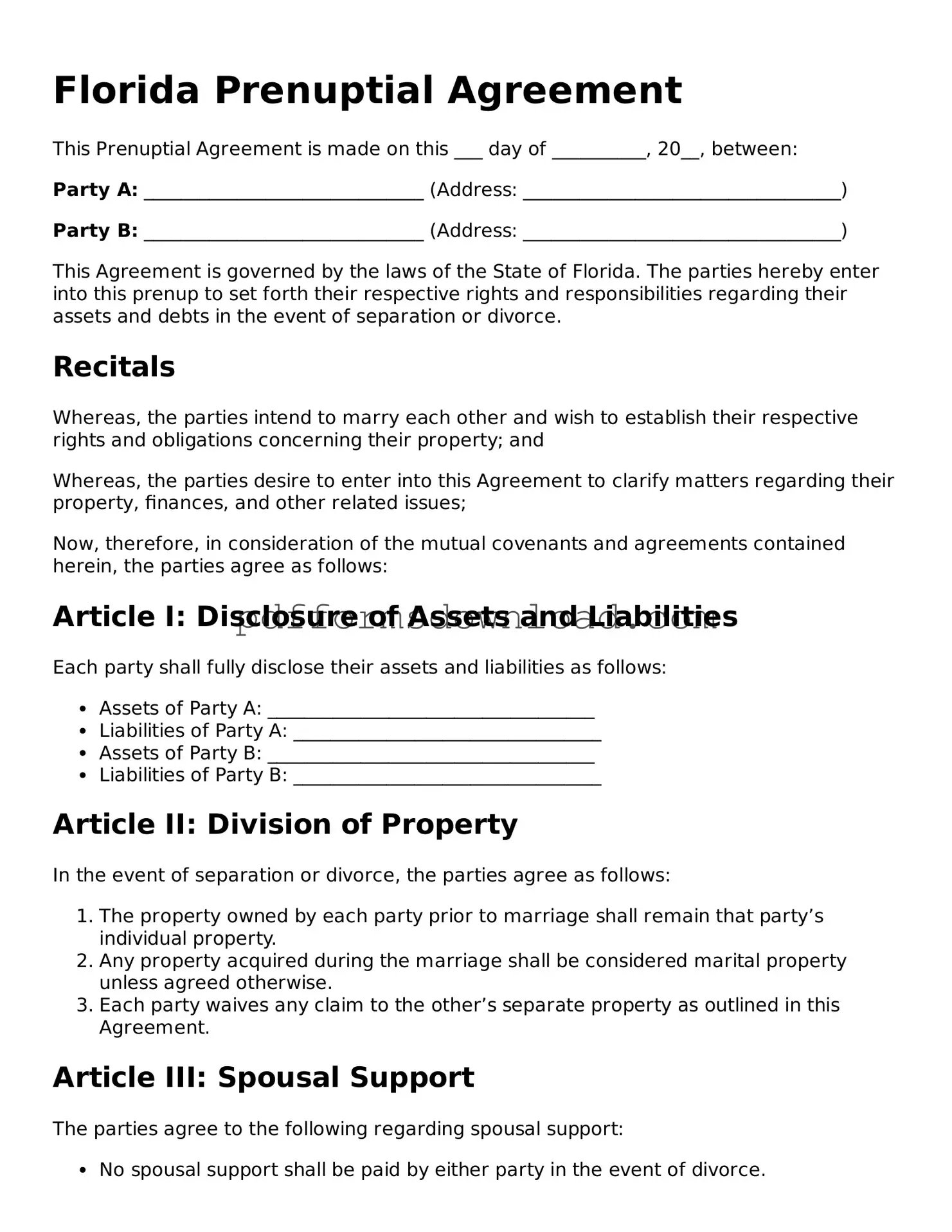What is a prenuptial agreement in Florida?
A prenuptial agreement, often referred to as a "prenup," is a legal contract entered into by two individuals before they get married. This agreement outlines the division of assets and financial responsibilities in the event of divorce or separation. In Florida, these agreements can help protect individual property rights and clarify financial expectations during the marriage.
Why should couples consider a prenuptial agreement?
Couples may consider a prenuptial agreement for various reasons. It can provide peace of mind, especially for those entering the marriage with significant assets, debts, or children from previous relationships. A prenup can also facilitate open discussions about finances, helping to prevent misunderstandings and conflicts later on.
What must be included in a Florida prenuptial agreement?
In Florida, a prenuptial agreement should clearly outline the rights and responsibilities of each party regarding property and finances. Common elements include the identification of separate and marital property, provisions for spousal support, and how debts will be managed. It is essential that both parties fully disclose their financial situations for the agreement to be enforceable.
Are there any requirements for a prenuptial agreement to be valid in Florida?
Yes, for a prenuptial agreement to be valid in Florida, it must be in writing and signed by both parties. Additionally, it should be executed voluntarily, without coercion or undue influence. Both parties must have a fair understanding of the terms and implications of the agreement, which is why legal counsel is often recommended.
Can a prenuptial agreement be changed after marriage?
Yes, a prenuptial agreement can be modified or revoked after marriage. Both parties must agree to the changes, and any modifications should be documented in writing and signed by both individuals. It’s advisable to consult with a legal professional when making changes to ensure that the revised agreement remains enforceable.
What happens if a prenuptial agreement is contested in Florida?
If a prenuptial agreement is contested, the court will evaluate its validity based on several factors. These include whether there was full disclosure of assets, if the agreement was signed voluntarily, and whether it is unconscionable or unfair. Courts may uphold the agreement if it meets legal requirements, but they can also modify or invalidate it if it does not adhere to Florida law.
How does a prenuptial agreement affect divorce proceedings?
A prenuptial agreement can significantly influence divorce proceedings by providing a clear framework for asset division and spousal support. If the agreement is valid, it typically will be honored by the court, which can expedite the divorce process and reduce disputes over property and finances.
Should I hire a lawyer to draft a prenuptial agreement?
Hiring a lawyer to draft a prenuptial agreement is highly advisable. An experienced attorney can ensure that the agreement complies with Florida laws and adequately protects both parties' interests. Additionally, legal counsel can help facilitate discussions about sensitive financial matters, making the process smoother for both individuals.

